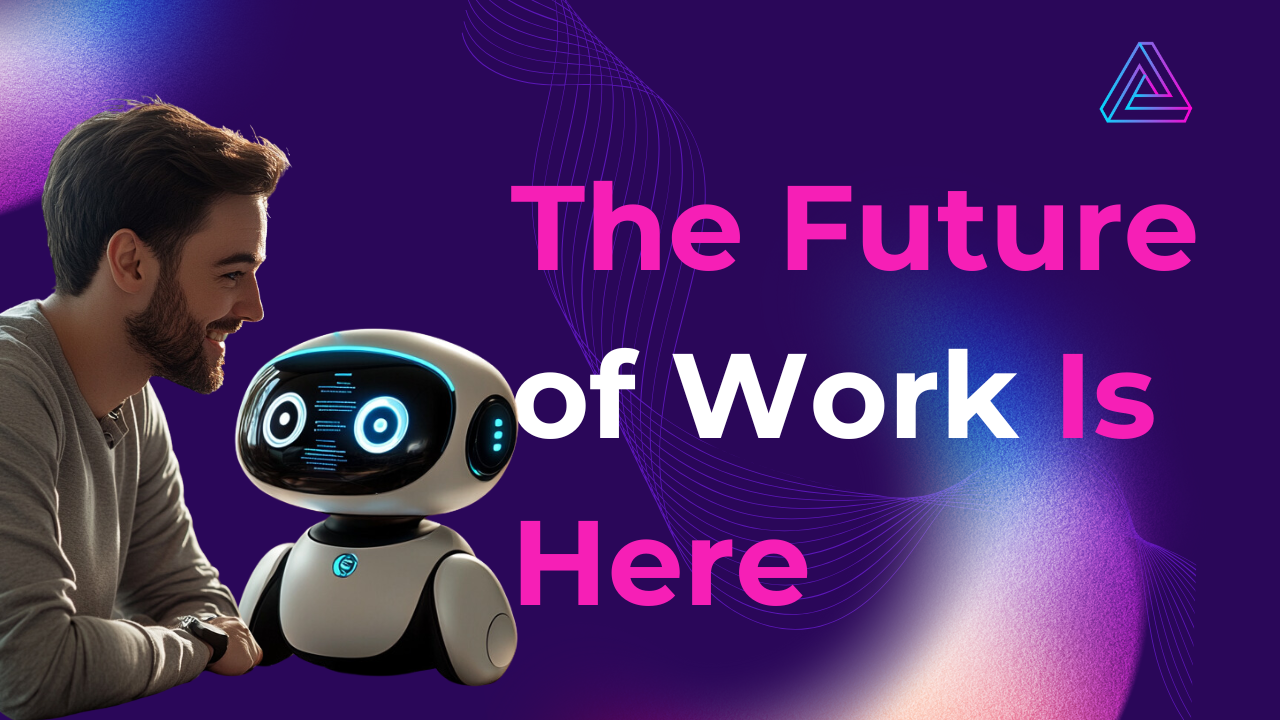How Companies Are Saving Time and Scaling Faster
AI Is Here to Handle the Work You Don’t Want to Do
Every business leader wants more time—but most don’t realise how much time is wasted on tasks that AI can handle instantly.
Think about how much time your team spends on:
- Sorting and responding to emails
- Manually scheduling meetings
- Updating reports and documents
- Handling repetitive customer service requests
According to a 2024 Accenture study, businesses that use AI-driven automation cut administrative work by up to 45%—unlocking thousands of hours per year to focus on high-value work.
The future of AI isn’t about replacing people. It’s about removing repetitive work so teams can be more strategic, creative, and productive.
Let’s break down how AI agents work and how businesses are already using them to scale faster.
What Are AI Agents? (And How They’re Different from Traditional Automation)
Automation isn’t new. Businesses have used rule-based automation for years (e.g., email auto-responders, scheduled workflows). But traditional automation has one major limitation—it can’t adapt when things change.
AI agents are different. Instead of following rigid rules, they analyze data, learn from patterns, and make decisions in real-time.
Traditional Automation vs. AI Agents
- Traditional Automation → Follows pre-set rules (e.g., “If X happens, do Y”). Works well for predictable tasks but lacks flexibility.
- AI Agents → Understand context, language, and intent, improving their responses and decision-making over time.
Example: AI in Email Management
A standard email filter might sort messages into folders based on keywords. An AI email agent, however, can read the email, understand the urgency, and draft a response—all without human input.
This level of intelligence is why companies are turning to AI to automate complex, time-consuming business processes.

How Businesses Are Using AI Agents to Automate Work
AI agents are already transforming industries, from finance to marketing to customer service. Here’s how companies are using them today:
1. AI for Admin & Workflow Automation
The Problem
The average professional spends 3-5 hours per day on admin tasks—emailing, scheduling, data entry. That’s 15+ hours per week lost to repetitive work.
How AI Helps
- AI-powered scheduling assistants (like Reclaim AI) optimise your calendar, automatically booking meetings at ideal times.
- AI document processors summarise contracts, extract key data, and auto-file reports.
- Email AI assistants (like Microsoft Copilot or Google Gemini) draft, sort, and prioritise messages.
Real-World Example
A consulting firm integrated AI workflow automation and reduced email management time by 40%, freeing up teams to focus on client strategy.
2. AI in Customer Service & Support
The Problem
Businesses struggle with high customer service costs and slow response times, leading to frustrated customers and lost revenue.
How AI Helps
- AI-powered chatbots handle 70-80% of common customer inquiries instantly.
- Sentiment analysis tools detect when a customer is frustrated and escalate the issue to a human agent.
- AI call assistants listen, transcribe, and summarise calls, reducing support time.
Real-World Example
A Forrester study found that AI-powered customer service chatbots reduce resolution times by up to 60%, improving customer satisfaction and lowering support costs.

3. AI for Marketing & Sales Automation
The Problem
Marketing and sales teams spend countless hours manually personalising outreach, segmenting leads, and drafting campaigns.
How AI Helps
- AI-powered content tools generate emails, ad copy, and blog posts in seconds.
- Predictive analytics identify high-value leads and recommend personalised follow-ups.
- AI-driven CRMs analyse customer behaviour to suggest the next best action.
Real-World Example
A retail brand implemented AI-generated email marketing and increased click-through rates by 35% while reducing manual workload.
Why Businesses Using AI Agents Are Scaling Faster
AI adoption isn’t just about saving time—it’s about staying competitive. Businesses that leverage AI agents see:
- Higher Efficiency → Teams spend more time on strategy, not admin work.
- Lower Costs → AI reduces the need for manual processes, cutting operational expenses.
- Increased Revenue → AI-driven companies outperform competitors by leveraging data-driven decision-making.
A PwC report estimates that AI could contribute $15.7 trillion to the global economy by 2030. Companies that adopt AI now will dominate their industries in the coming years
How to Implement AI Agents in Your Business
Ready to automate repetitive work and free up your team for high-impact tasks? Here’s how to get started:
Assess Your Workflow – Identify time-consuming tasks that could be automated.
Experience AI in Action – Book a free discovery call to see how AI can optimise your business.
Start with an AI Pilot Program – Implement AI in one area (e.g., scheduling, customer support) before scaling.
Track & Optimise – Measure AI impact and refine your automation strategy over time.
🚀 See AI in Action – Book a Demo of Our AI Agent Product
Final Thoughts: AI Agents Are the Future of Business
AI isn’t just a tech trend—it’s a fundamental shift in how businesses operate. Companies that integrate AI now will work faster, scale more efficiently, and outperform competitors.
The real question is: Will you let AI handle the busywork, or will you keep doing it manually?

